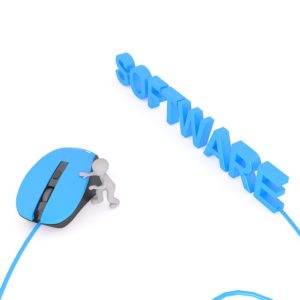Two key focuses of my blog are Business and Entrepreneurship, and Technology. A critical aspect to successfully running a business today is choosing the right software for your purposes. The following contributed post is thus entitled; This Is How To Choose Business Software.
* * *
Getting the right software for your business can change your operations completely. You could be more productive and efficient when you have the best tools for your business. Unfortunately, finding the apps that work for you isn’t as easy as you might like it to be. There are lots of things to consider, from the features that the software offers to how much you’ll be paying. You need to think about what you need new software for, and how it’s going to benefit your business. It can be a long process, but it’s best not to rush it if you want to make the best decision.
Identify Your Needs
Before you can find the right apps for your business, you need to identify your requirements. What do you want the software to help you with? You might have a specific need, like a tool to help with accounting. However, you could have a more open goal, such as improving productivity for your company. It’s best if you can be as specific as possible by identifying the problems that you want to solve. This will help you to search for the best software to meet your needs. You can compare software types and features against your requirements.

Research Solutions
Once you know what your needs are, you can start researching a few different solutions. You won’t necessarily be looking at specific tools just yet. You just need to see what sort of apps are available to meet your needs. For example, if you need something to make invoices more manageable, you might be looking at accounting tools, document management software or perhaps productivity tools. You can find a few different options that could potentially help you with your issue. Start looking at prices too so that you can get an idea of how much you might need to spend.
Create a Software Budget
Once you’ve started looking at possible options and prices, you should create a budget for how much you want to spend. Many apps are now subscription-based, which can help you to save money compared to more traditional software options. You can find you’ll pay a monthly amount based on features and the number of users who will using the app. While you can find cheaper options, make sure you’re not trying too hard to save money. It’s worth investing a bit more in the apps you choose to make sure you get the features that you need.
Choose Software for Your Industry
It’s a good idea to see if there are any software options that are tailored to your industry. If there are, they’re likely to have plenty of features specific to your needs. Some industries in particular can benefit from this, like the hospitality industry. Using custom hotel software will allow you to manage bookings, maintenance and many other things involved in running a hotel. Ecommerce software can help you to manage your sales and orders, as well as your warehouse or inventory. These apps can help you meet a huge number of needs that your business might have, all in one package.
Find Apps You Can Customize
Even though you can find lots of tools that meet your needs, you can make them even better if you’re able to customize them. Plenty of software solutions can be customized, and it doesn’t have to be too expensive. You can work with someone who will help to develop an app just for you so that it meets all of your needs. It also helps you make sure that you’re not wasting money on features that you don’t need and won’t use.
Look for Apps You Can Integrate
If you already have some useful tools that you don’t want to stop using or you’re looking for some a selection of different tools, make sure you can integrate the new apps that you choose. Integration will allow you to connect all of your favorite apps so they can work together. For example, you might have an inventory management tool that works together with your accounting software. Many software providers have an API that make it easy to connect different tools so you can continue to use existing ones that work for you.

Speak to Your Team
When you introduce new tools to your business, you need to make sure that the people who will be using them are happy with your choice. You should talk to your employees to get their opinion and find out what their needs are. What are the problems that they most want to be solved? What frustrations do they come up against when using software? You should think about what training might be available too. Are there existing training programs or perhaps even trainers provided by the software service?
Start with a Shortlist
Now that you’re a bit more familiar with your options and what you need, you can start making a shortlist of potential tools to use. Make a note of some of the possibilities that you’re considering and how they could help you, as well as how much they cost. You should have a good idea of what sort of tools you’re looking for, and what problems they’ll be solving. Try to keep your shortlist to a maximum of five options so you don’t have to compare too many.
Evaluate Available Features
With your shortlist at hand, you can start comparing the available features to see which tools are going to meet your needs. In addition to looking at which functions you have, you might want to look at things such as customer service and support, as well as the price. If you choose a SaaS (software as a service) solution, you can get everything that you need in one package, including the help and support you require. Don’t forget to check testimonials and reviews too, so you can see what other people have thought of the tools and service.
There’s lots to consider to get the right software for your business. Choose carefully if you want to use your time and money wisely.
